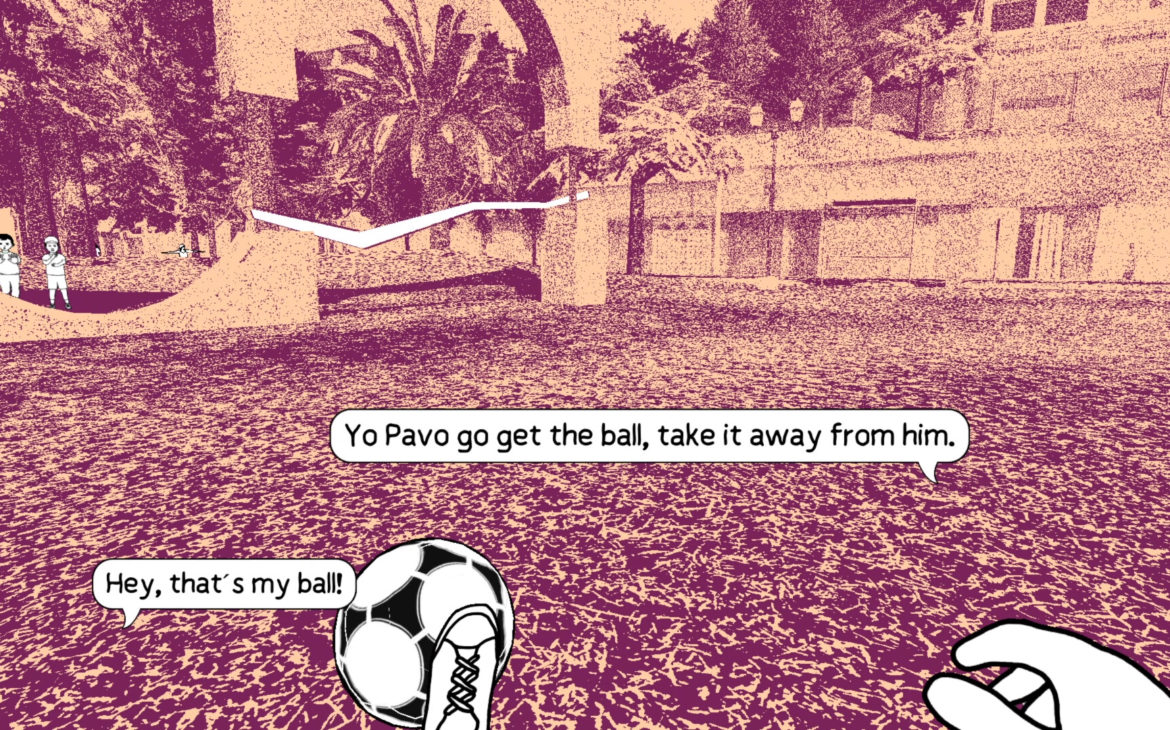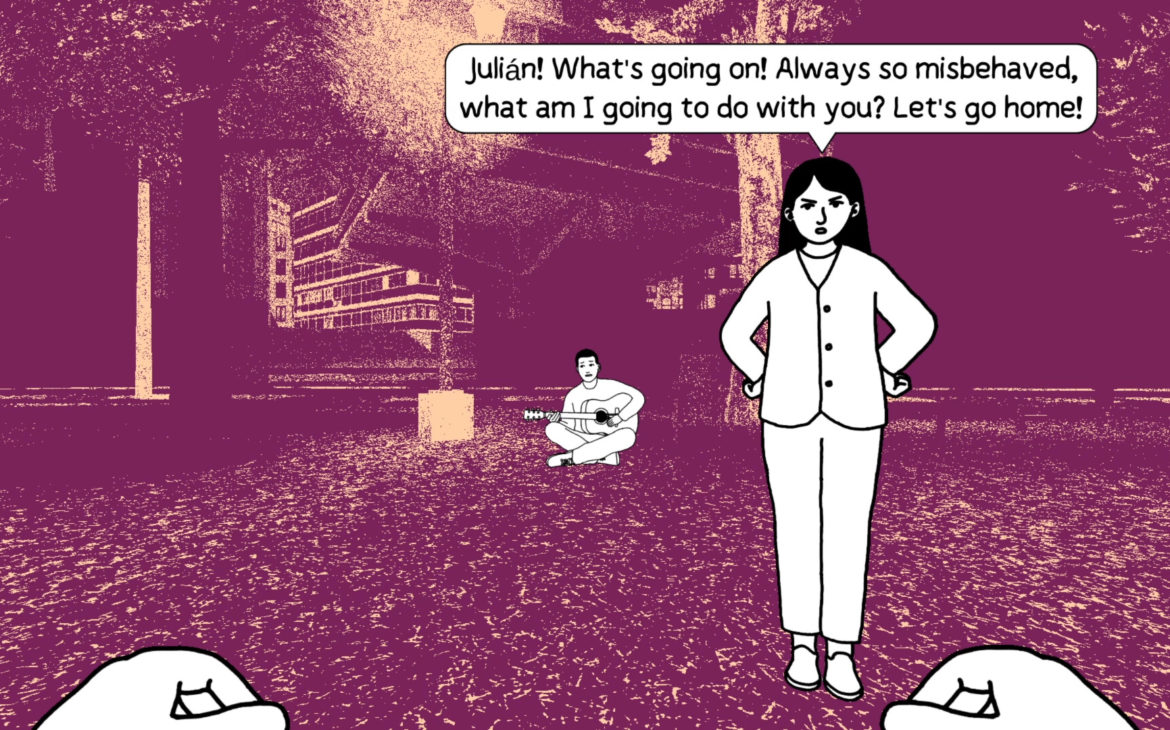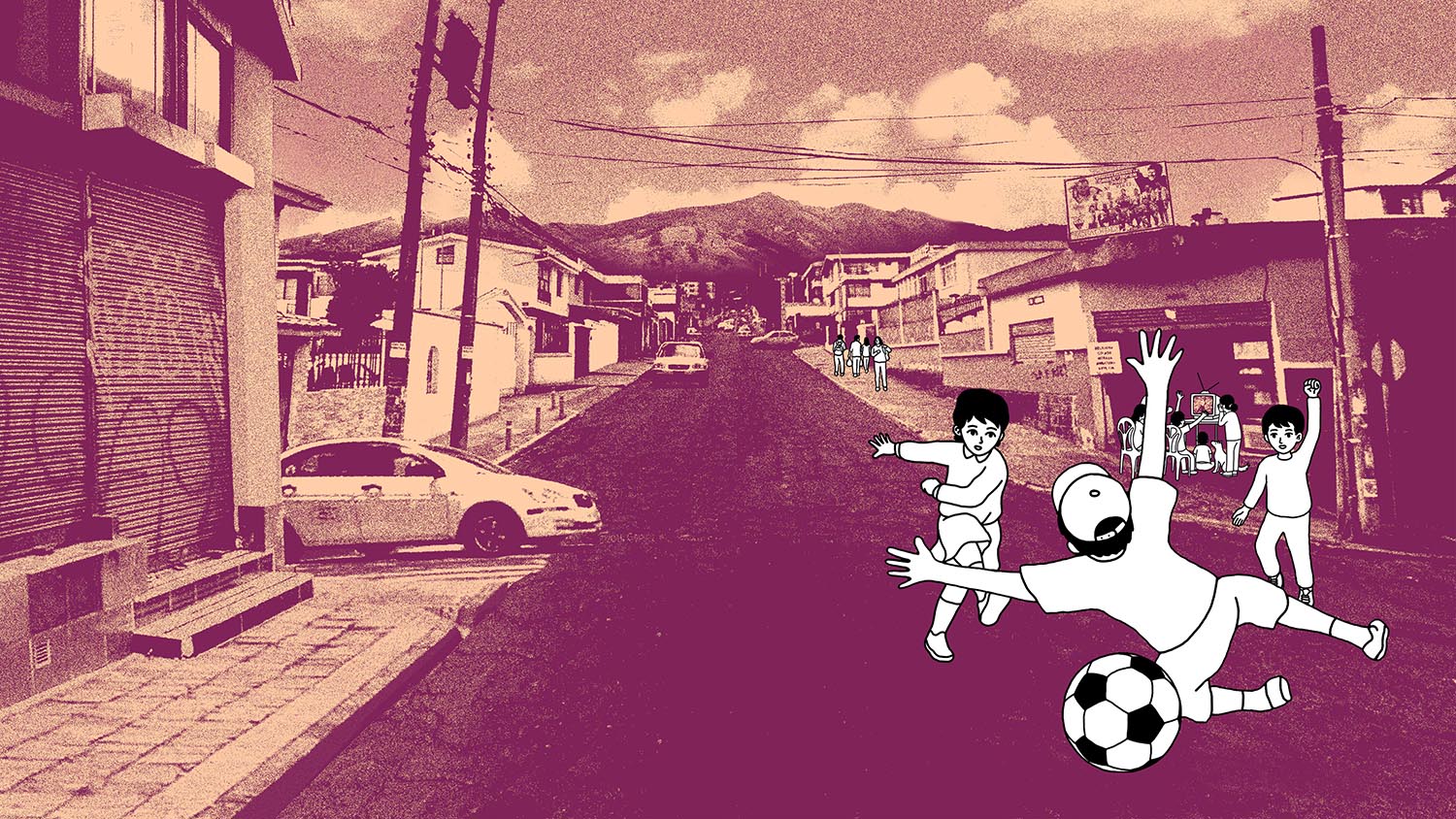Video games are the basis for beautiful storytelling. This is what I believe, a genre of the type that can keep the industry moving whilst creating interactive ways to experience the most engaging content. There’s a world where video games are held up in the mainstream alongside movies, television and books and not ignored or belittled. If only they played games like Despelote.
It’s difficult to know where to really begin with this one. Despelote is a singular experience, incomparable to anything else I’ve played this generation. It’s silent and patient, minimalist and unexplosive. There’s a uniqueness to every frame of this game, and it’s why you’ve already seen a myriad of positive reviews already.
You’re placed in Ecuador in 2001. The country’s national football team has just qualified for the World Cup for the first time, and you’re seeing the joy and excitement of the country through the eyes of a young, football-obsessed boy who is in the shoes of this semi-autobiographical tale of the games developer. It’s first person and you’ve got a football at your feet pretty much throughout.

In the Finger Guns offices, we would talk about Despolote as the football game that isn’t a football game. But it is really, it’s just a different kind of football game. It’s FC 25 if you spent the entire time focusing on a singular fan going to see his first match at Wembley Stadium. There would be a football, posters everywhere, the joy and elation that only football can give you is beating throughout. You see a country euphoric at being alive to witness the impossible, and being in the very centre of the pandemonium is an eight-year-old boy called Julian with a football and a poster of his favourite player on his bedroom wall. It’s the fundamentals.
Naty its visual style stands out and made me pay attention to this one in the first place. Like a collection of old photographs you’re walking through, recollecting a most cherished childhood memory. The lack of agency and the aforementioned patience of Despelote allows you to explore Julian’s hometown, play football with his friends, enter the local shops with his mother, learn about the people around you and watch football on grainy black and white TVs in shop windows.
Throughout this, you’re kicking a ball up and down a wall, passing it back and forth to your mates, playing with a balloon whilst the world around you carries on. Julian’s singular focus becomes yours, and whilst there’s a whole world to explore, what becomes most apparent is that all that matters is the ball at your feet, and the imagination and daydreams Julian has for himself when it’s in his control.

And there’s exquisite detail in detailing just how important this qualification is for Ecuador. There’s narration between chapters detailing what it means to the country in a time of economic strife. You’ll also have the fourth wall broken down by the narrator discussing the game’s development, which is a nice touch. The lack of visual lavishness is used efficiently, demonstrating how difficult it can be to remember certain moments from such a long time ago.
And it’s why I finished Despelote with the belief that it’s a true representation of what a video game can be and how I’m so unfathomably tired of defending this incredible art form. No other medium could tell this story that way that Despelote does, The interactive retelling of a game developer’s childhood can be so engaging given the opportunity to walk in their shoes and learn about their history, and their moments they felt were worthy enough to build a video game around. Through Despelote I’ve learned so much about that time in Ecuador, something I honestly never really considered all that much. Despolote is why video games are so important to storytelling.
Despelote is out now on PC (reviewed), PS5, Xbox Series S|X, PS4 and Xbox One
Developers: Sebastian Valbuena, Julián Cordero
Publisher: Panic Inc
Disclaimer: In order to complete this review, we were provided with a promotional copy of the game. For our full review policy, please go here.
If you enjoyed this article or any more of our content, please consider our Patreon.
Make sure to follow Finger Guns on our social channels. Twitter, Facebook, Twitch, Spotify or Apple Podcasts – to keep up to date on our news, reviews and features.
